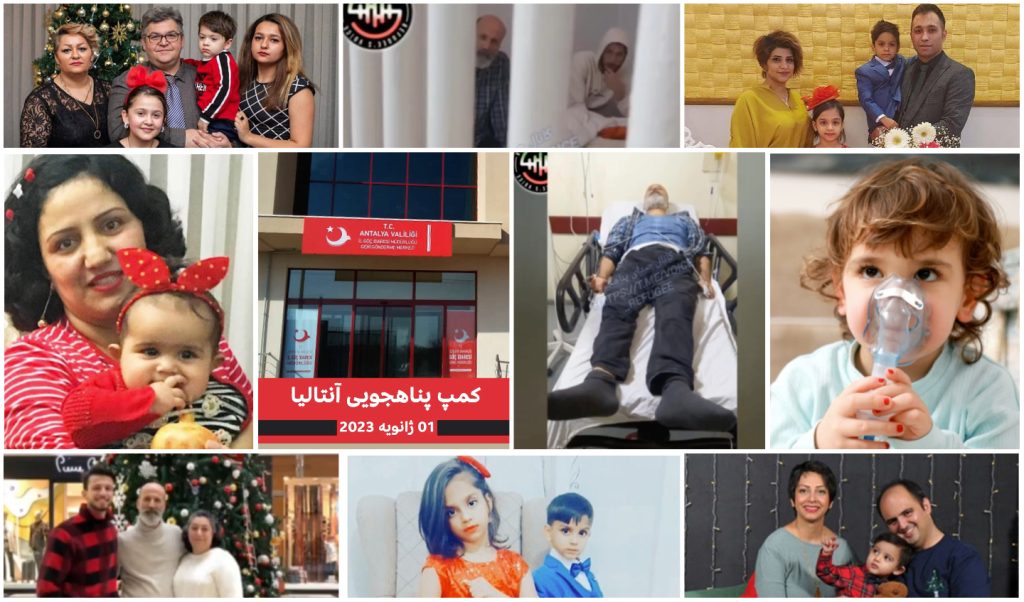
Article18 has received firsthand testimonies from five Iranian Christian refugee families – 17 individuals in total – who have been arrested in Turkey in recent weeks and taken to “removal centres”, where they have been detained and threatened with deportation.
The Christians, who in some cases have been held for over three months, reported unsanitary conditions in the camps, lack of access to food, hot water and medication, and how husbands have been held separately from their wives and children and only permitted to see them once a week, for just 15 minutes, and in the presence of guards.
Human Rights Watch has released two reports in recent months detailing similar mistreatment of Syrian and Afghan refugees, and now it appears Iranians are also being targeted.
All but one of the Iranians Article18 spoke to are converts to Christianity; the other is an Iranian-Assyrian. (Assyrians are an ethnic minority group recognised as “Christian” in Iran, while converts from Islam are still considered Muslim, despite their change of belief.)
Two are church leaders, while several of the others lead worship or help with the youth at their churches.
The majority live in the city of Isparta, in south-western Turkey, and have been detained at camps in the coastal city of Antalya, two hours’ drive away.
However, Article18 has also received reports of Iranian Christian refugees being arrested in several other cities over the past six months, and detained in camps across the country – including in the cities of Izmir and Aydin in the west, Van in the east, and Kayseri and Kirikkale in central Turkey.
Some of the Christians recorded videos, which were sent to Article18 and in some cases also shared on social media, to help raise awareness of their plight.
Meanwhile, those who have helped them to publicise their mistreatment have reported threats from the Turkish police.
‘Psychological war’
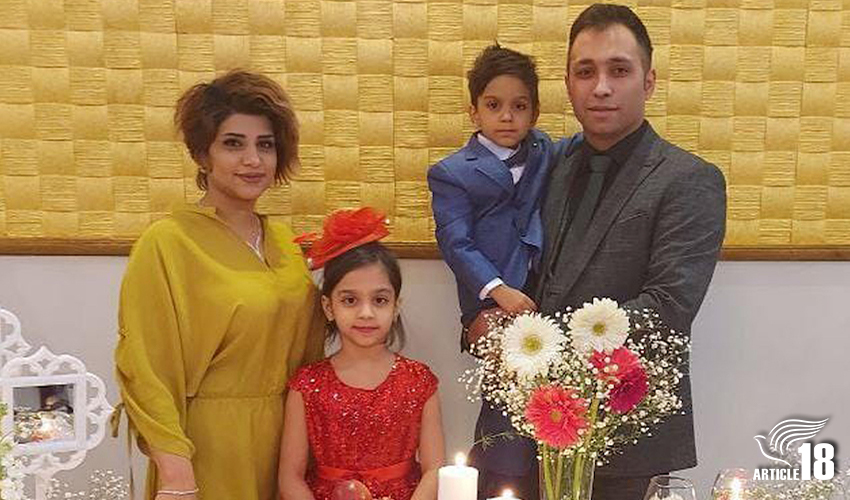
One of the Christians detained in Antalya, Kamran Topa Ebrahimi, explained how the men in his camp went on hunger strike to protest against the conditions there, and a lack of explanation of why they are being held.
“They didn’t tell us [why],” says Kamran, who is being held separately from his wife, Mona, and their two children, eight-year-old Roshana and five-year-old Hoshiana. “They just said they were afraid we would run away after our case was rejected. We didn’t even know our case had been rejected. They just came to our home and took us, and later we realised that our translator had translated our statements incorrectly.
“There is no hot water here at all for washing or bathing, and they put cockroaches in the food. They are starting a psychological war against us, telling us: ‘You are going to stay here for six months, and if you don’t return to your country in the next six months, it will be extended for another six months. And if you don’t return then, it will be extended for another year!’
“We just want clarification on our cases. They open the doors to our room from around eight or 10 in the morning until four in the afternoon, and then they put us back in our room again. They open them again at 8pm, until midnight, and then they’re closed.”
‘We use a rubbish bin to wash ourselves’
Kamran’s wife, Mona, explained how, as there is no hot water in the camp in which she and her two children are being held, she and the other detainees cleaned out a rubbish bin to use as a basin to wash themselves.
“The situation is very bad,” she said. “Just to call you, I had to wait in a queue for more than one hour. Even for little things, we must fight to get what we need. You see fights for things like phone calls, washing machines, and even boiled water.
“We don’t have a shower, and we don’t have hot water from the tap, so we cleaned a rubbish bin and use it to wash ourselves.

“My son is five years old, and my daughter is eight, and in the last 21 days I could wash them properly only once.
“There is only one doctor here, and no matter what illness we have, he says you need to take paracetamol. My children have been sick for the last 21 days, and they don’t get better because they don’t receive suitable and proper nutrition. I received antibiotics for them from outside the camp. My friends brought the medications to me. But even so, my children don’t get better.
“We have been on hunger strike for a week now because we saw insects, hair and worms in our food, and the hygiene is terrible, and the children get stomach pains. We haven’t even received water and bread to give to our children yesterday or today.
“There are six families here with children – from three to 18 years old – and the situation is not suitable for them at all.
“How can Turkey deport us, as Christians, to Iran, as they know what’s going on there? They have started a psychological game against us to force us to sign our deportation forms.
“The circumstances are so difficult that we would rather go to Iran and get killed than stay here. Especially for active Christians, the situation is so hard that I don’t know what the future looks like for us.”
‘Every day passes like a year’
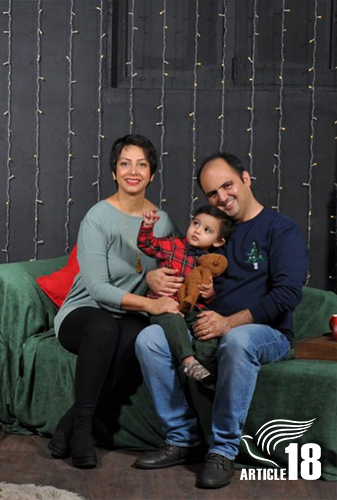
For Ninous Italiaee, the Assyrian pastor, and his wife, Azadeh, the separation of Ninous from their three-year-old son, Anil, has been the hardest part of their detention.
“For two months now, he can only see his father for 15 minutes a week,” Azadeh explained. “Unfortunately, Anil is very anxious here and he isn’t getting proper food; the hygiene is below-zero, unfortunately, and we have to wash with ice-cold water.
“For two months, every day has passed like a year for us, and we really don’t know what is ahead.
“It’s really like a swamp here [in Turkey]: the more we move, the deeper we sink. We have no way to return to Iran because my husband is an Assyrian Christian and I myself was born a Muslim. Our marriage certificate states that we are ‘Protestant Christians’, and my child was born in Turkey, so he has no identity in Iran. We really cannot go back.”
Ninous explained how their asylum case was initially accepted by the UN, in 2017, before the UNHCR passed on the responsibility of assessing asylum claims to the Turkish authorities.
Since then, he says their case has been reviewed and rejected three times by the Turkish authorities.
“The UN interviewed us in 2017, which lasted four hours, and very soon afterwards we received a positive answer, and the UN organisation was kind enough to register the acceptance of the first interview on its website, which is still available,” he says.
“Since then we have been waiting for a new country, but unfortunately we have not been granted one. And in fact, the UN organisation entrusted the work to the Turkish authorities, and unfortunately these people were not sufficiently competent to conduct the interview; they had no knowledge about the conditions of Christians in Iran.
“They rejected our case, and the problems started for us. Now, unfortunately, it has come to this point and we have been living in this camp for two months.
“The same people who were accepted by the UN, this same case was rejected by the Turkish police, and they rejected this case not once but even three times. I believe that they [the Turkish authorities] don’t know about the conditions of Christians in Iran, and that’s why I think this issue [of Turkish authorities assessing asylum claims] should be reconsidered – not only for me, but also for the other Christians who are here [in Turkey].”
‘My daughter just follows other children and cries’
Another of the detained Christians, Faranak Reziei, is of Kurdish ethnicity, and explained how she was arrested after changing her WhatsApp status to signify this fact on the 40th day after the death of Mahsa Amini, the young woman whose death in custody sparked the ongoing protests in Iran, and who was also a Kurd. (The 40th day after a death is a significant occasion for Iranians.)
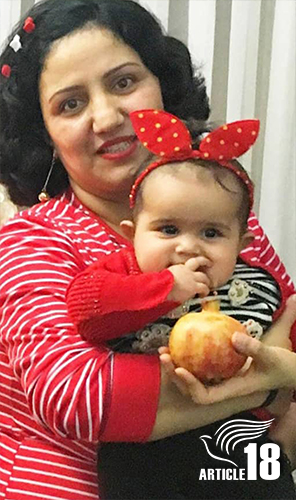
“I don’t know who but someone reported my story to the Turkish police and said that I am working with the Turkish Kurds [the PKK],” said Faranak, a single mother who has been detained for 30 days, along with her four-year-old daughter, Mersana.
“After the investigation, the Turkish police said they didn’t see any problems, and that I could go, but the immigration police won’t let me.
“Why would they search my four-year-old daughter and make her fearful and make her cry?
“Food is another problem. The ingredients from outside the camp are sold here at two to three times the price. As a single-mother refugee, without any support, how can I buy food for my daughter? My daughter just follows other children and cries.
“My crime is that I defended my country. The whole world knows what’s going on in Iran these days. I just wrote that ‘I am a Kurd’. What is the relationship between the Kurdish groups and me in Turkey? If I am a terrorist, why I don’t have 100 lira [$5] in my pocket to buy something for my daughter to prevent her from crying?”
‘They put lots of pressure on us’
Another young woman, Sarvenaz Ghaderi Bafghi, explained how she and her parents, Amir and Somayeh, brother Samyar, and sister Tanaz were “forcefully” taken to the Antalya camp, where they have been detained for 25 days.
“The circumstances are very bad here,” she said. “They don’t give us medication. They say it takes 10 days to get medication, and you must pay for it. And we don’t have any support [here] to pay the rent for our home. The landlord will throw all our belongings away if we don’t pay the rent.
“The situation is very difficult here, and they are rude to us. They put lots of pressure on us and it is affecting our mental health.”

‘Scared to go outside’
Reza Pouti, pastor of the Iranian Freedom Church in Isparta, told Article18 he knew of one Iranian Christian who had been deported, with his wife and two children, before they could even sell their property in Turkey.
“Others have signed the deportation orders so they won’t be sent to the camps,” he said.
But the situation is difficult even for those outside the camps, explained the pastor, before he too was detained.
“It’s a prison – not only in the camps but people even outside are under this big fear,” he said. “They’re afraid to open their door; that’s how bad the situation is – even afraid to go onto the street.
“Every now and then they transfer asylum-seekers to the camps with trickery. I myself fear such a situation.
“The police officers went to my house the other day. I don’t know why – because my asylum case was rejected and they want to transfer me to the camp, or because of the release of these videos and the delivery of food and medicine to our dear ones inside the camp.
“Since no-one was home, they kept watch in front of the building, and my family and I cannot return to our home right now.”
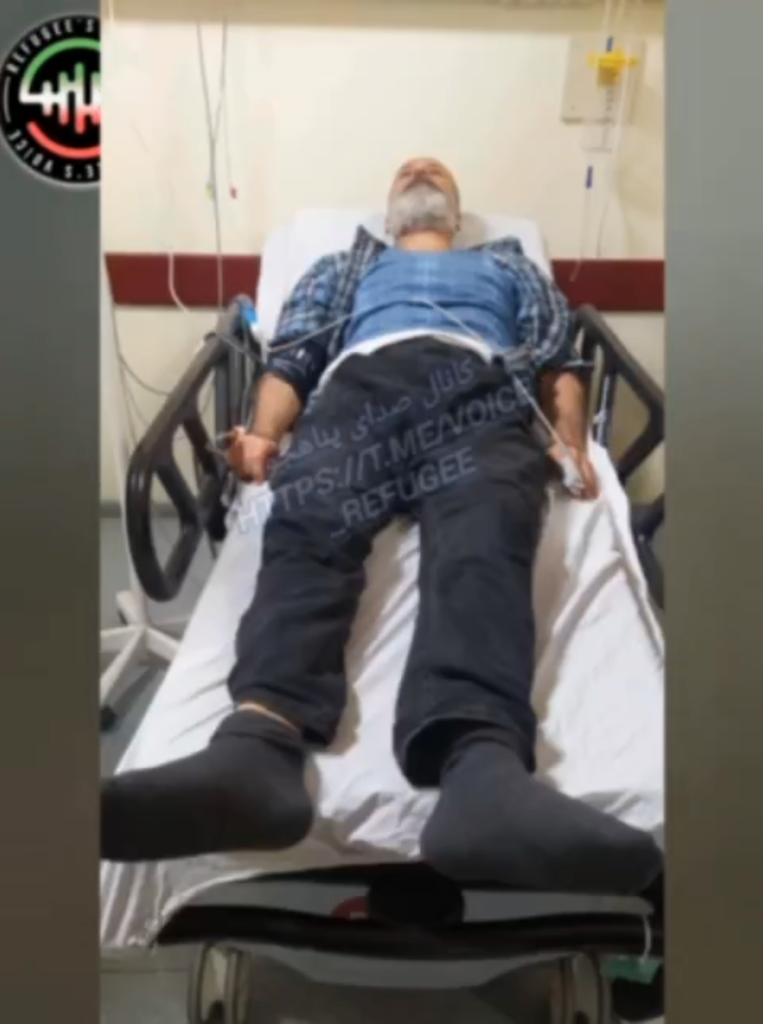
Three weeks after sending Article18 this message, Reza, who has multiple sclerosis, was himself arrested and detained, along with his wife Roshanak and younger son Mohammadreza.
According to Article18’s source, the stress of the arrest led to a deterioration of Reza’s health, and he had to be hospitalised for a day, before being returned to the camp in Aydin, which is four hours from their home in Isparta.
“Reza was just arriving home when he was arrested on the street by the police,” our source said. “That happened just a short time before he and his family were transferred to the camp.
“The hygiene is very bad there. There is no soap or toilet-paper, and it is unclear for how long they will be kept there.”
Turkey ‘not a safe third country’
In October, Human Rights Watch reported that hundreds of Syrian refugees had been detained in camps in Turkey in 2022, tricked into signing “voluntary” return forms, and forced back over the border at gunpoint.
A month later, the rights group released another report detailing similar mistreatment of Afghan refugees.
Human Rights Watch said the dramatic increase in deportations of refugees over the past year is “likely attributable, at least in part,” to a “tidal shift” in Turkish public opinion against refugees, with the vast majority of those surveyed saying refugees needed to be prevented from entering the country, or “deported urgently”.
The political situation is not helping, with presidential elections on the horizon, and every single party promising to deal with the “refugee problem”.
Human Rights Watch said it was now clear that Turkey is not and should never have been viewed as a safe third country.
The EU was wrong to view it as such, Human Rights Watch said, and to continue to fund the centres in which refugees are being detained and forcibly deported.
“The EU and its member states should acknowledge that Turkey does not meet its criteria for a safe third country, and suspend its funding of migration detention [centres] and border controls until forced deportations cease,” said Human Rights Watch researcher Nadia Hardman. “Declaring Turkey a safe third country is inconsistent with the scale of deportations… Member states should not make this determination and should focus on relocating asylum seekers by increasing resettlement numbers.”
The EU’s deal with Turkey in 2016 was “based on the flawed premise that Turkey would be a safe third country”, Human Rights Watch’s report added. “However, Turkey has never met the EU’s safe third country criteria as defined by EU law.”
Human Rights Watch noted how Turkey has ratified both the International Covenant on Civil and Political Rights and the European Covenant on Human Rights, both of which prohibit arbitrary arrest and detention, as well as inhuman and degrading treatment.
“If Turkey detains a person to deport them but there is no realistic prospect of doing so, including because they would face harm in the destination country, or the person is unable to challenge their removal, the detention is arbitrary,” Human Rights Watch explained.
The rights group also accused Turkey of failing to abide by international law regarding the principle of “non-refoulement”, which prohibits the return of anyone to a place where they face a real risk of persecution, torture, ill-treatment, or a threat to life.
It should be noted that the UK Home Office’s current guidance on asylum cases involving Iranian Christians recognises that even “ordinary Christians” – not only leaders – are at “real risk of persecution”.
Human Rights Watch has called on Turkey to allow the UNHCR to monitor and assess the mass deportations that have been taking place, to ensure refugees aren’t being forced back to their home countries against their will.
If you would like to help support Iranian Christian refugees in Turkey or learn more about their options for resettlement, please email us at info@articleeighteen.com
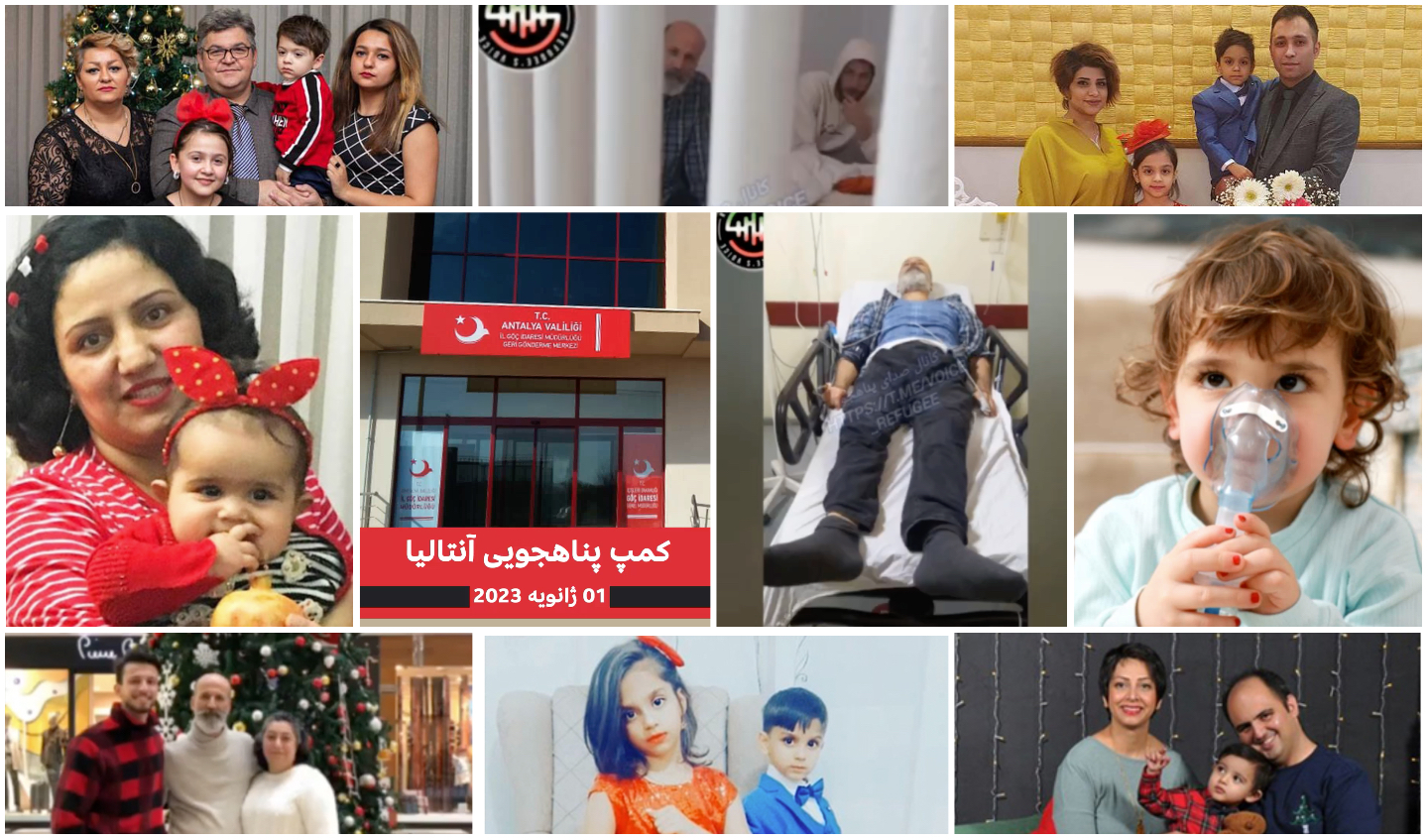
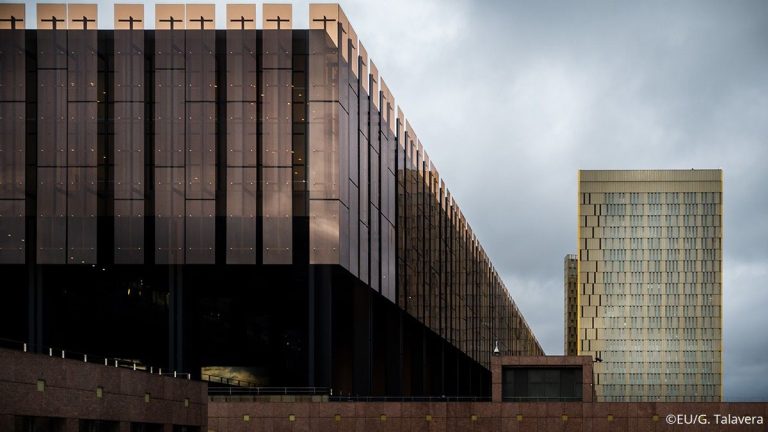
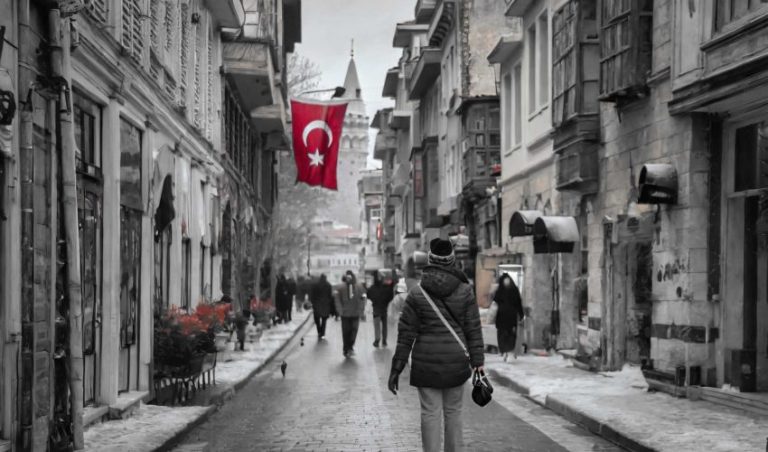
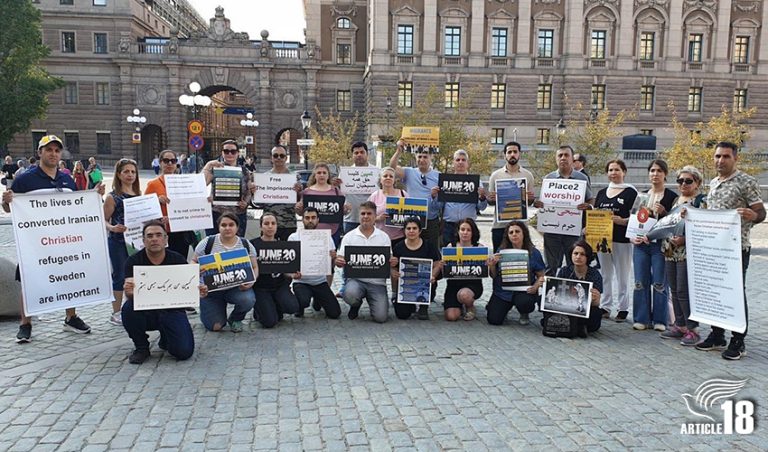
0 Comments
Trackbacks/Pingbacks